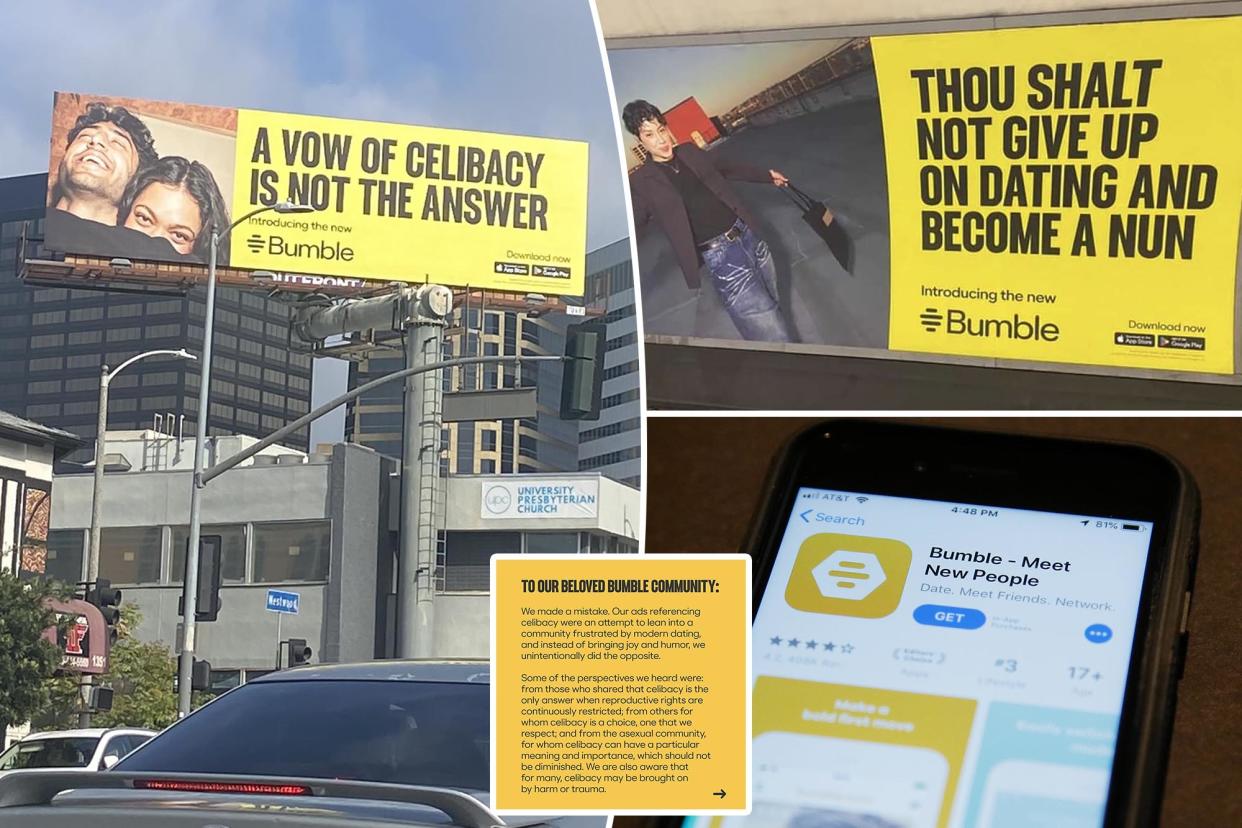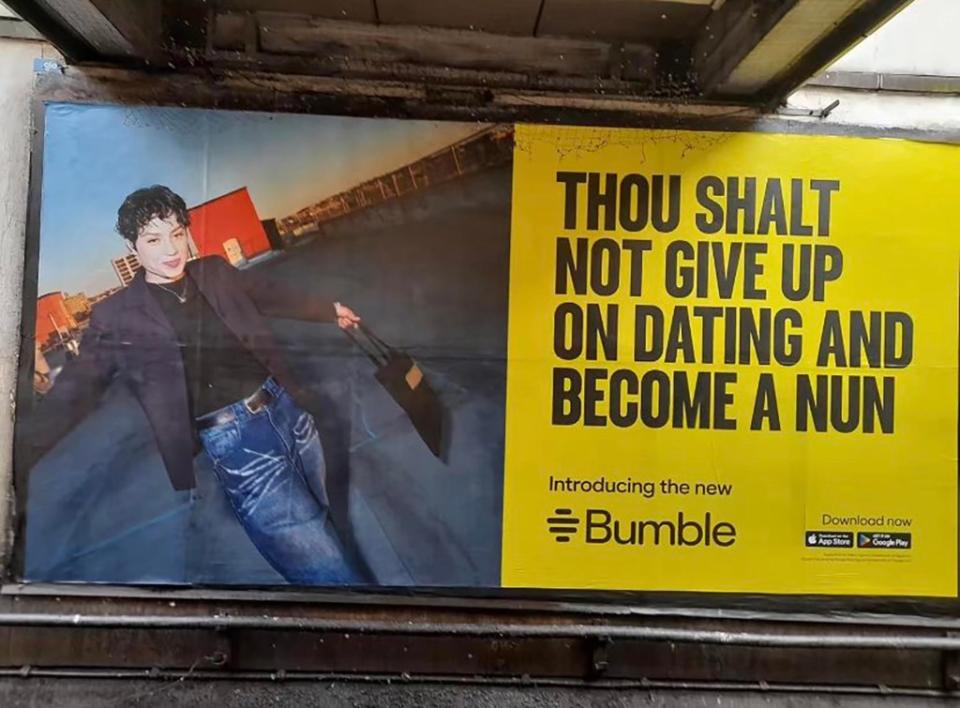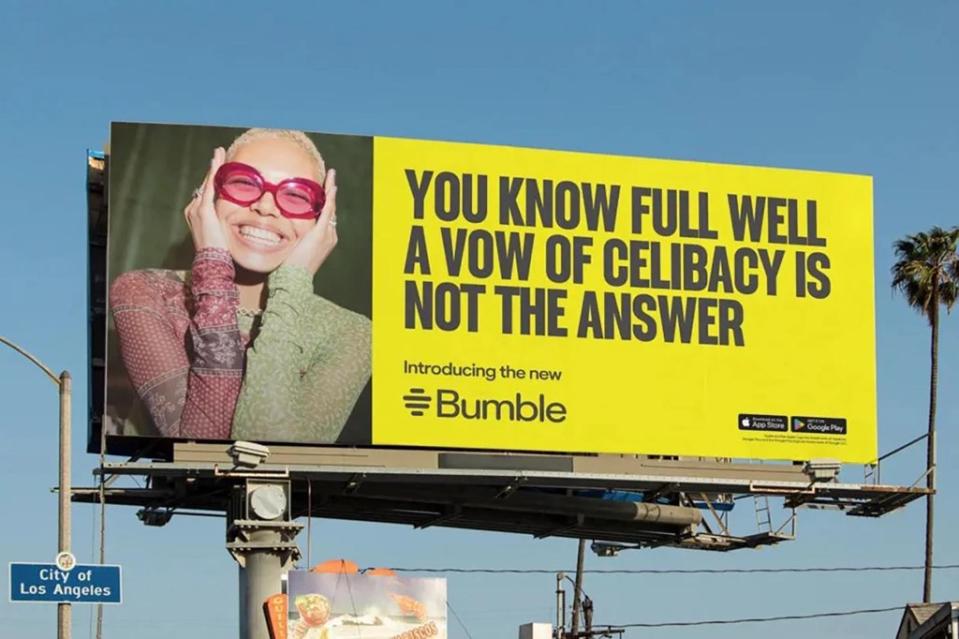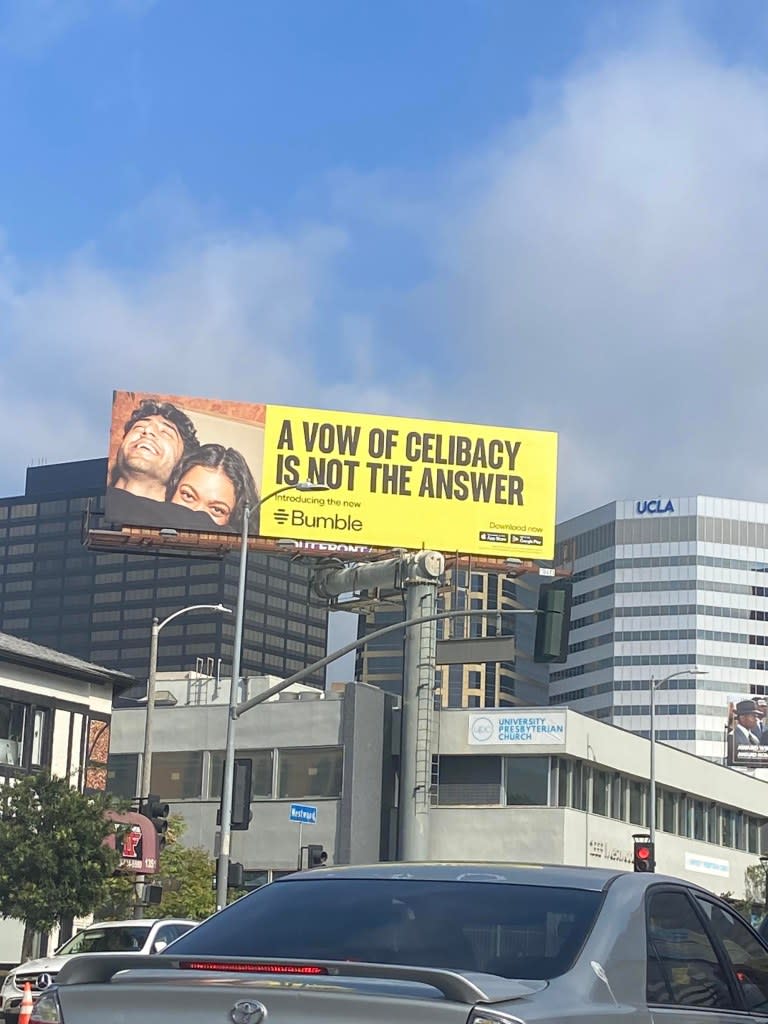Bumble removes anti-celibacy campaign, calling it a ‘mistake’ after backlash

Singles are swiping left on Bumble.
On Monday, the dating app issued an apology and announced it would remove its controversial anti-celibacy advertisements after receiving backlash online about its new campaign, which it called a “mistake.”
Last month, Bumble rolled out new features to the app to put women in the driver’s seat while dating. The revamp was accompanied by a series of adverts that joked about the frustrations of dating.
Billboards reading “a vow of celibacy is not the answer” and “thou shalt not give up on dating and become a nun” riddled the Los Angeles sky. Meanwhile, a commercial depicted a woman joining a convent after swearing off dating, only to fall head-over-coif for an ab-baring gardener and join Bumble on a forbidden phone.


The campaign seemed to be a response to the increasing number of women growing tired of dating and swearing off sex, or “voluntary celibacy,” which some individuals may partake in due to religion or trauma — not just an unfortunate series of bad first dates.
Online, women slammed Bumble for mocking the personal choice, chastising the company for thinking sex could solve singles’ dating woes. Even Julia Fox chimed in, commenting that she’s “never been happier” after spending more than two years celibate.
Amid the criticism, Bumble released an apology online acknowledging their “mistake,” promising to remove the advertisements, donate to the National Domestic Violence Hotline and offer the billboard space to organizations that support women, marginalized communities and abuse survivors.
“Our ads referencing celibacy were an attempt to lean into a community frustrated by modern dating, and instead of bringing joy and humor, we unintentionally did the opposite,” Bumble’s statement reads, in part.

The company added: “Some of the perspectives we heard were: from those who shared that celibacy is the only answer when reproductive rights are continuously restricted; from others for whom celibacy is a choice, one that we respect; and from the asexual community, for whom celibacy can have a particular meaning and importance, which should not be diminished. We are also aware that for many, celibacy may be brought on by harm or trauma.”
Bumble, which was released in 2014, placed the power in women’s hands by “flipping traditional gender roles,” only allowing women to make the first move. At the time, this was a radical concept that set the app apart from competitors like Hinge or Tinder, on which either of the singles could message the other.
In April, however, Bumble introduced “Opening Moves,” which gave users the option to prompt matches with pre-written questions, relieving the burden of messaging first.
“For years, Bumble has passionately stood up for women and marginalized communities, and their right to fully exercise personal choice,” the company said in its statement.
“We didn’t live up to these values with this campaign and we apologize for the harm it caused.”
Unhappy users, however, were not pacified by the company’s response, who claimed the app “leaned into the feelings of men” with a lack of “regard for women,” while others advised that the app should hire “a female marking team” next time.
“Men wrote that ad campaign and realized the app can’t work without women,” wrote one person.
“Too little, too late,” commented another. “There’s no coming back from the demoralization and disrespect you’ve shown women with these ads.”
“I don’t know how you let this campaign ever get out of the approval stage,” chided someone else.

